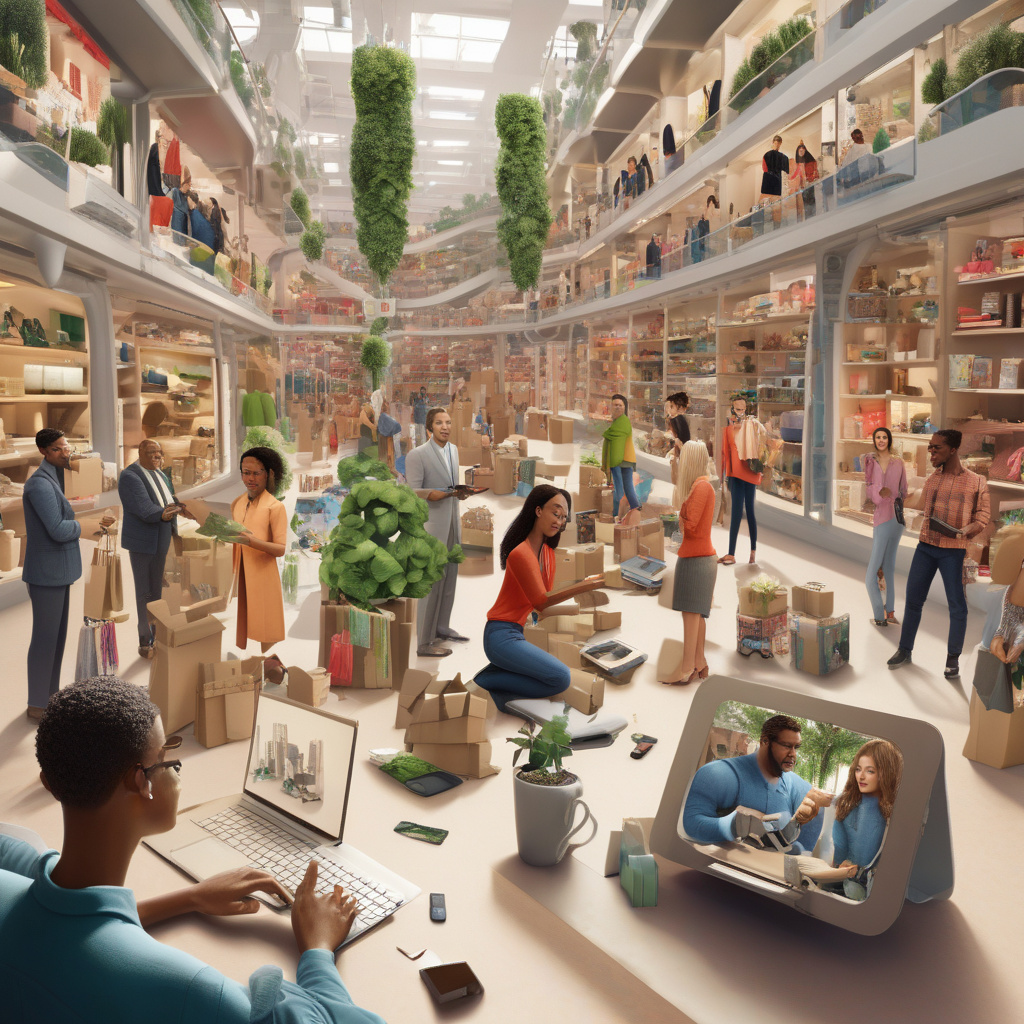Ecommerce Fuels the Circular Economy: How Second-Hand Sales are Revolutionizing Retail
The landscape of retail is shifting, and ecommerce is at the forefront of driving change. One significant trend that is gaining momentum is the rise of second-hand sales online, which is playing a pivotal role in shaping the circular economy. According to a recent report by Bundesverband E-Commerce, buying second-hand products online has become increasingly common in Germany, with 55 percent of consumers purchasing a used item over the past year. This shift in consumer behavior not only reflects a growing preference for sustainable shopping practices but also highlights the potential for ecommerce to drive positive environmental impact.
The circular economy aims to minimize waste and promote resource efficiency by maximizing the lifecycle of products. In traditional retail models, the linear economy, products are manufactured, sold, and eventually discarded. This approach leads to significant environmental consequences, including high levels of waste generation and resource depletion. In contrast, the circular economy seeks to create a closed-loop system where products are reused, repaired, or recycled, reducing the overall environmental footprint of consumption.
Ecommerce platforms have emerged as key players in promoting the circular economy by facilitating the buying and selling of second-hand goods. The convenience and accessibility of online marketplaces have made it easier for consumers to extend the life of products by giving them a second chance at usefulness. In Germany, a majority of consumers are not only buying but also selling used items online, with 52 percent of individuals engaging in second-hand sales, particularly in the fashion, books, and electronics categories.
One of the primary drivers behind the success of second-hand sales in ecommerce is the shift in consumer attitudes towards sustainability. As more individuals become conscious of the environmental impact of their purchasing decisions, there is a growing demand for more sustainable alternatives. Buying pre-owned items allows consumers to reduce waste, lower their carbon footprint, and support a more circular approach to consumption. Ecommerce platforms offer a diverse range of second-hand products, providing consumers with sustainable options across various categories.
Furthermore, the rise of second-hand sales in ecommerce aligns with the broader trend of conscious consumerism, where shoppers prioritize ethical and sustainable practices. By choosing to buy and sell used items online, consumers are contributing to a more sustainable and environmentally friendly retail ecosystem. This shift not only benefits the planet but also presents new opportunities for businesses to align with consumer values and drive positive change.
In conclusion, ecommerce is playing a crucial role in advancing the circular economy through the promotion of second-hand sales. As more consumers embrace sustainable shopping practices, the demand for pre-owned goods is likely to continue growing. By leveraging the power of online platforms, retailers can tap into this trend, reduce waste, and support a more sustainable approach to retail. The circular economy is not just a concept; it is a tangible reality that ecommerce is helping to bring to fruition.
#Ecommerce, #CircularEconomy, #Sustainability, #SecondHandSales, #RetailRevolution
